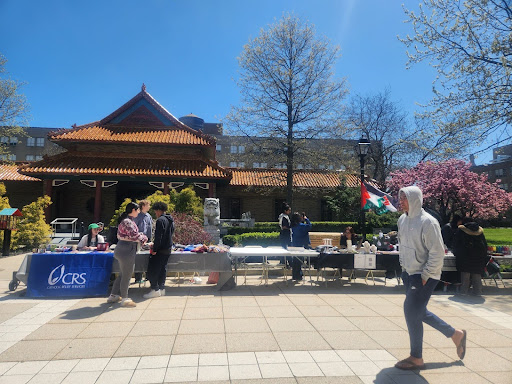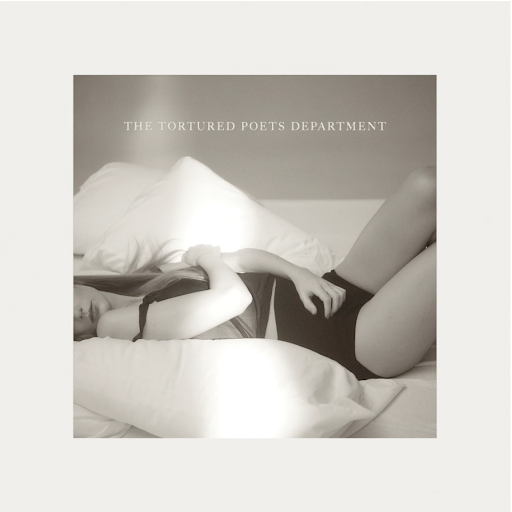Faculty members from various departments at St. John’s are upset over the University’s decision to eliminate some books from the St. Augustine Library collection as a part of its renovation plan.
According to University Librarian Theresa Maylone, books need to be removed from the library stacks in order to free up space for a number of renovations, including offices for professors and a tentatively named “Humanities Center,” which will potentially house seminar rooms, among other things.
The process of getting rid of these books, Maylone said, has been going on since last May. However, after the University decided in December to set the deadline for shortly after graduation, the library staff found itself in need of completing its task sooner than it had expected.
The time constraint, along with an alleged lack of communication between educational departments and the library staff, has led to concern among faculty over the consolidation process. Members of the English department, in particular, are among those concerned over which books should be taken from the shelves and their initial lack of involvement in the discarding process.
For instance, Dr. Stephen Sicari, the chair of the English department, said he “found out almost by accident” about the necessity to weed out books from a member of the History department during a March 25 meeting of the Liberal Arts Faculty Council.
Sicari, who is now taking an active role in helping the library’s efforts, and other professors in the English department have subsequently been in contact with Maylone in order to have a say in which books are removed.
“I think the librarians were put in really bad positions,” he said.
“If you have a plan, shouldn’t everyone in the faculty hear this?” he said. “I would have liked to have been told back in January.”
Other departments have since been notified of the Library’s need to ship out books. According to Maylone, the library has finished phase one of its plan, during which green slips were placed in books that had never been circulated before so that they could be considered for removal.
She added that phase two of the process of removing books has begun – a time when faculty expertise will be beneficial. But many professors still have concerns over having to choose books in such a short timeframe. “This is not a faculty versus library thing,” said English professor Dr. Gregory Maertz. “This is a faculty who was perplexed.”
Maertz said that the source of faculty concern is “the proper management of the collection” by a library staff that is forced to make quick decisions. “For us, it’s very emotional, because that’s what our discipline is,” he added.
Dr. Luba Racanska, chair of the Government and Politics department at St. John’s, believes that the library is the “intellectual center of any university.” She expressed a concern over the library’s losing physical books and moving towards digital formats. “The online resources such as journals and books need to be fully operational for a seamless transition,” she added.
Although some professors feel that not enough effort was taken to contact them at the beginning of this process, Maertz, who has been working closely with library staff, said that a new communication has opened up between both the library staff and the faculty.
One suggestion that has been considered is creating departmental collections, where each department within the University would be allowed to select any of the books being considered for removal.
In fact, according to St. Augustine officials, the library’s consultations of the French and Italian departments have led to the creation of departmental collections for some of the books that won’t fit in after the new renovations. The English department has marked some books for storage in their own facilities.
The criteria for the removal of the books, according to Andrew Sankowski, director of Collections and Information Management, includes the book’s age, physical condition, duplication of copies and current relevance to the subject matter.
The first thing looked at was the book’s circulation history. Books that have never been borrowed from the library received green strips of paper in their pages indicating such.
“You look at the book in context on the shelf and you make a decision based on what you see,” Sankowski said.
The library also uses in-house specialists in each subject to help to select what stays and what goes. Books slated for removal will not simply be discarded.
Better World Books, an organization that sells discarded and donated material from libraries across the country, is expected to take a significant number of books. The library will receive a percentage of sale profits. Others are being given to the Catholic Near East Welfare Association, a papal agency for humanitarian support, for donation to churches and peoples of the Middle East, Northeast Africa, India and Eastern Europe. Maylone would not speculate on how many books have been removed.
“I am incredibly encouraged with the passion and interest the faculty have shown,” said Maylone. “I think this is the beginning of an excellent communication between the library and faculty.”
Ibi Yolas, the executive director of Design and Construction at St. John’s, said that the work on the library is the “first project” in the University’s “master plan” of renovations. She also explained that Maylone had brought the faculty’s concerns to the attention of the Board of Trustees – the organization that planned the renovations.
“I understand that she’s been very good [at getting the faculty involved],” she said. “This is really between just the libraries and the faculty.”
















